
Egypt 2003: Memphis and Saqqara
The ruins of the ancient city of Memphis are situated on the left bank of the River Nile about 19 miles south of Cairo. Although most of the visible remains are not particularly spectacular, Memphis really should be visited before the Pyramids of Giza and Saqqara for two reasons: firstly, because these sites are in fact the two main necropolises of Memphis; and secondly, because Memphis played a key role in Egyptian history for over three thousand years. The city was founded by the first 1st-Dynasty king Menes (or Narmer) and, although it was not the capital as such (this is too modern a concept), it has almost always been the center of Egypt. Its role as such has been favored by its geographical location on the boundary between Lower and Upper Egypt and almost at the apex (point of divergence) of the Nile Delta. As a result Memphis and its immediate environs became known, among other things, as the juncture of the Two Lands. The name Memphis was derived from the Greek form of the Egyptian Men-neter, which was an abbreviation of the name of the Pyramid of Pepy I at Saqqara and its dependency.
 memphis/j001.jpg
memphis/j001.jpg
|
 memphis/j002.jpg
memphis/j002.jpg
|
 memphis/j003.jpg
memphis/j003.jpg
|
 memphis/j004.jpg
memphis/j004.jpg
|
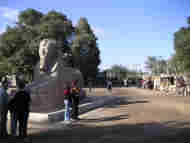 memphis/j005.jpg
memphis/j005.jpg
|
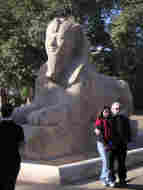 memphis/j006.jpg
memphis/j006.jpg
|
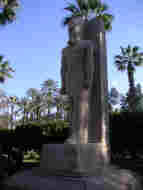 memphis/j007.jpg
memphis/j007.jpg
|
 memphis/j008.jpg
memphis/j008.jpg
|
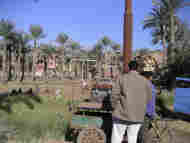 memphis/j009.jpg
memphis/j009.jpg
|
 memphis/j010.jpg
memphis/j010.jpg
|
With Giza, Saqqara is one of the two main necropolises of Memphis. Its monuments cover every period of Egyptian history, including the Archaic period (these are now engulfed by sand), the 3rd Dynasty and the Christian era. Stretching across the desert is a string of non-royal pyramid and cemeteries which also depended on Memphis. Although these sites may not feature on many tourist itineraries (some are in any case military zones and therefore out of bounds), they are an important part of understanding Ancient Egypt and especially the Old Kingdom.
 saqqara/j001.jpg
saqqara/j001.jpg
 saqqara/j002.jpg
saqqara/j002.jpg
 saqqara/j003.jpg
saqqara/j003.jpg
 saqqara/j004.jpg
saqqara/j004.jpg
 saqqara/j005.jpg
saqqara/j005.jpg
 saqqara/j006.jpg
saqqara/j006.jpg
 saqqara/j007.jpg
saqqara/j007.jpg
 saqqara/j008.jpg
saqqara/j008.jpg
 saqqara/j009.jpg
saqqara/j009.jpg
 saqqara/j010.jpg
saqqara/j010.jpg
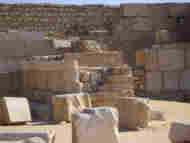 saqqara/j011.jpg
saqqara/j011.jpg
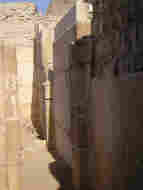 saqqara/j012.jpg
saqqara/j012.jpg
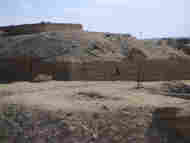 saqqara/j013.jpg
saqqara/j013.jpg
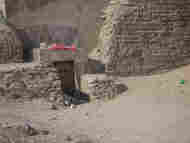 saqqara/j014.jpg
saqqara/j014.jpg
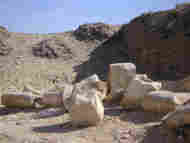 saqqara/j015.jpg
saqqara/j015.jpg
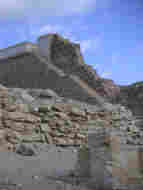 saqqara/j016.jpg
saqqara/j016.jpg
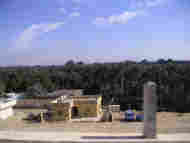 saqqara/j017.jpg
saqqara/j017.jpg